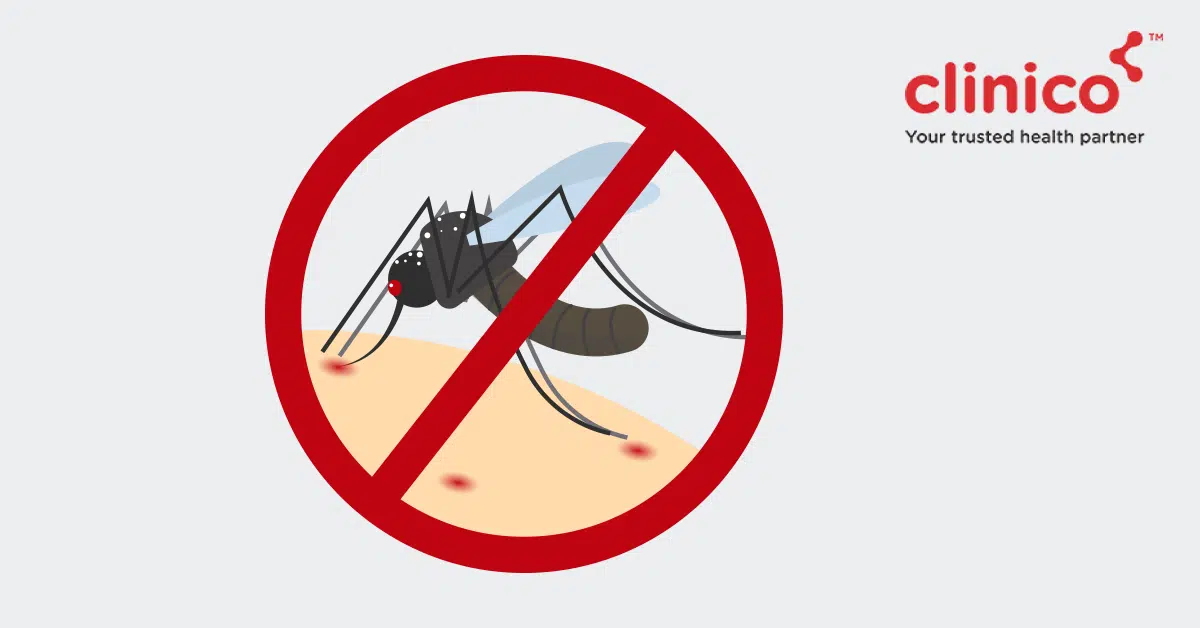
Do you know that malaria can cause severe health issues such as damage to the brain, heart, lungs, or kidneys if left untreated?
Read this informative blog to get a clear understanding of what is malaria, its various causes, malaria symptoms, the period during which symptoms generally appear, when to consult a doctor and how it’s treated.
What is Malaria?
A deadly mosquito-borne illness, malaria is caused by the plasmodium parasite which is transmitted to humans by the female Anopheles mosquito.
This tropical disease is common in the regions of Africa, Southern Asia, South America & Central America. There exist 5 different kinds of plasmodium parasites which cause malaria and are found in these regions across the globe.
Causes of Malaria
Malaria is typically caused by the mosquito bite of a female anopheles mosquito infected with a parasite of the genus Plasmodium.
However, it can also be caused by exposure to malaria-infected blood, such as:
- From infected mother to unborn child
- Blood transfusions comprising infected blood
- Sharing of needles utilised for injecting drugs
What are the symptoms of Malaria?
The prominent symptoms of malaria are fever, headaches and chills.
Other common malaria signs & symptoms comprise:
- Joint and/or muscle pain
- Abdominal pain
- Body aches
- Nausea & vomiting
- Diarrhoea
- Uneasy feeling of sickness
- Tiredness
- Sweating
- Fast breathing
- High heart rate
- Cough
When do symptoms of Malaria appear?
Malaria symptoms generally materialise after around 1 week to a month (incubation period) post the infected mosquito bite.
However, this period can be more in people who are consuming preventive medicines for avoiding a malaria infection. In rare cases, the symptoms may show up after a year of the mosquito bite.
Additionally, the symptoms may also be experienced in cycles. The duration between episodes of fever and other malaria symptoms differs depending on the particular parasite infection.
When to consult a Doctor?
It’s well-advised to consult a doctor if you experience any symptoms of malaria, particularly fever while living in or post travelling to regions where malaria is a common disease.
It’s vital to remember that malaria can be a deadly illness if left untreated. Special precautions need to be taken for:
- Pregnant women
- Babies
- Young children
- Older adults
How to treat Malaria?
The general treatment for malaria comprises:
- Medications to eradicate the plasmodium parasite from the bloodstream
- Supportive care
- Hospitalisation in severe cases
- Intensive care, in some cases
- Blood transfusions in patients with severe malaria
Factors that influence the kind of treatment & medications employed for treating malaria include:
- Health condition (age, overall health, any other chronic disease, pregnancy)
- Severity of the malaria symptoms
- Type of malaria parasite detected
- Side effects of medications and their potential impact on your health
Conclusion
Research studies have found that around 290 million people are infected with malaria each year, with over 4 lakh people succumbing to the disease.
Hence, it’s crucial to take necessary precautions such as consulting a doctor regarding antimalarial drugs before visiting a region known for malaria infections.
Also, it’s important that you seek immediate medical assistance after experiencing any symptoms that indicate malaria. This will help you avoid life-threatening complications.
In case you are currently experiencing any symptoms of malaria, then click here to schedule a diagnostic test at your nearest Clinico centre: https://www.clinico.in/test/histopathology-big-specimen-hpe
